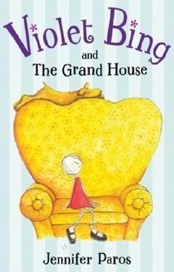It Doesn’t Matter: Letting Go of What Hurts
by Jennifer Paros
“It’s not what you look at that matters, it’s what you see.”
Last night when I was lying in bed wanting to sleep, I had a headache. It had started earlier in the day, later seemed to be abating, then returned with renewed verve. As I lay there I considered when the headache, in its trajectory, had circled back. I realized it was soon after I had started picking on myself. In the course of the evening, I had come up with a laundry list of self-criticisms, and was still feeling their effects when I crawled into bed.
I took note of the ongoing self-attack and mentally told myself to “Stop.” The response I heard was crystal clear: “But I don’t know how!” For a moment, I (the other me?) agreed: “Yes, I understand.” But then it hit me: of course I know how to stop insulting and denigrating myself. I know how to stop throwing a ball no matter how many times I’ve thrown it before. I just don’t throw it. But I do have to be willing to stop. And that willingness depends upon what I believe matters.
Years ago I was riding the train from Seattle to Oregon, seated next to a lovely older woman. She had clear blue eyes and a round, full face framed by bobbed, softly curled white hair. We started a conversation and one of the first things I remember her doing was looking down at her hands and saying, “Oh, they’re just awful - I hate them.” I could see her hands were swollen and somewhat disfigured, most likely arthritic. She then went on to tell me the tale of an unhappy childhood in which one day her mother just disappeared, leaving her and her family behind. That same day, her beloved doll went missing as well. She speculated about who had taken it and the thief’s possible motives. The doll had been given to her by her mother – an unusual, special gift and the only doll she’d ever had.
As my traveling companion told her story, which had a Dickensian feel – with poverty and hardship, mistreatment, even cruelty to some degree – it seemed as though her hands were contracted around everything she wished she could let go of. And those hands – accidentally charged with holding onto the worst of her life experiences and the most painful of her thoughts – were now hated by her. She was telling the unhappy story of what happened, a story probably at least sixty years old. And as her audience, I agreed with her: I too wanted the girl to have her mother and her doll. But in truth, the woman currently before me needed neither. Pain is a strange companion - logically, we try to avoid it; we try to get away from it, block it, mute it, and ignore it. Yet wittingly and unwittingly we also perpetuate it.
“There comes a moment when you realize what matters the most in your life. Let that moment be now and that matter be your love and kindness.”
Michael Neill, life coach and writer, has pointed out the simplicity and ease of letting go when it comes to releasing a pen; there is no confusion about the methodology. We just open our hand. It’s easy to let go of a pen because usually we haven’t made the pen important. If we saw it as important, letting go would suddenly seem complicated and hard. But when the pen doesn’t matter, it is easy to let it go.
The criticizer’s impact lies in us believing the criticism matters. What if it doesn’t? We don’t have to make it matter. Author Martha Beck once suggested responding to the inner critic’s comments with, “So?” There is power in questioning whether something really matters because we have the ability to deliberately determine meaning - and therefore, the impact of our experiences on us.
When we hold onto something that hurts we’re not actually holding onto the part of the story that matters. We are treating a thought or experience as important in self-defining terms when it is not is painful. Our value is intrinsic and defines us. Mother, doll, heartbreak, illness – the elements of a story are relevant. But when we see ourselves as inherently valuable and loved, those things cease to matter in a diminishing or hurtful way and it becomes natural to let the painful part go. And when we release what doesn’t matter, we’re better able to share what does. And that’s good storytelling.
Jennifer Paros is a writer, illustrator, and author of Violet Bing and the Grand House (Viking, 2007). She lives in Seattle. Please visit her website.

